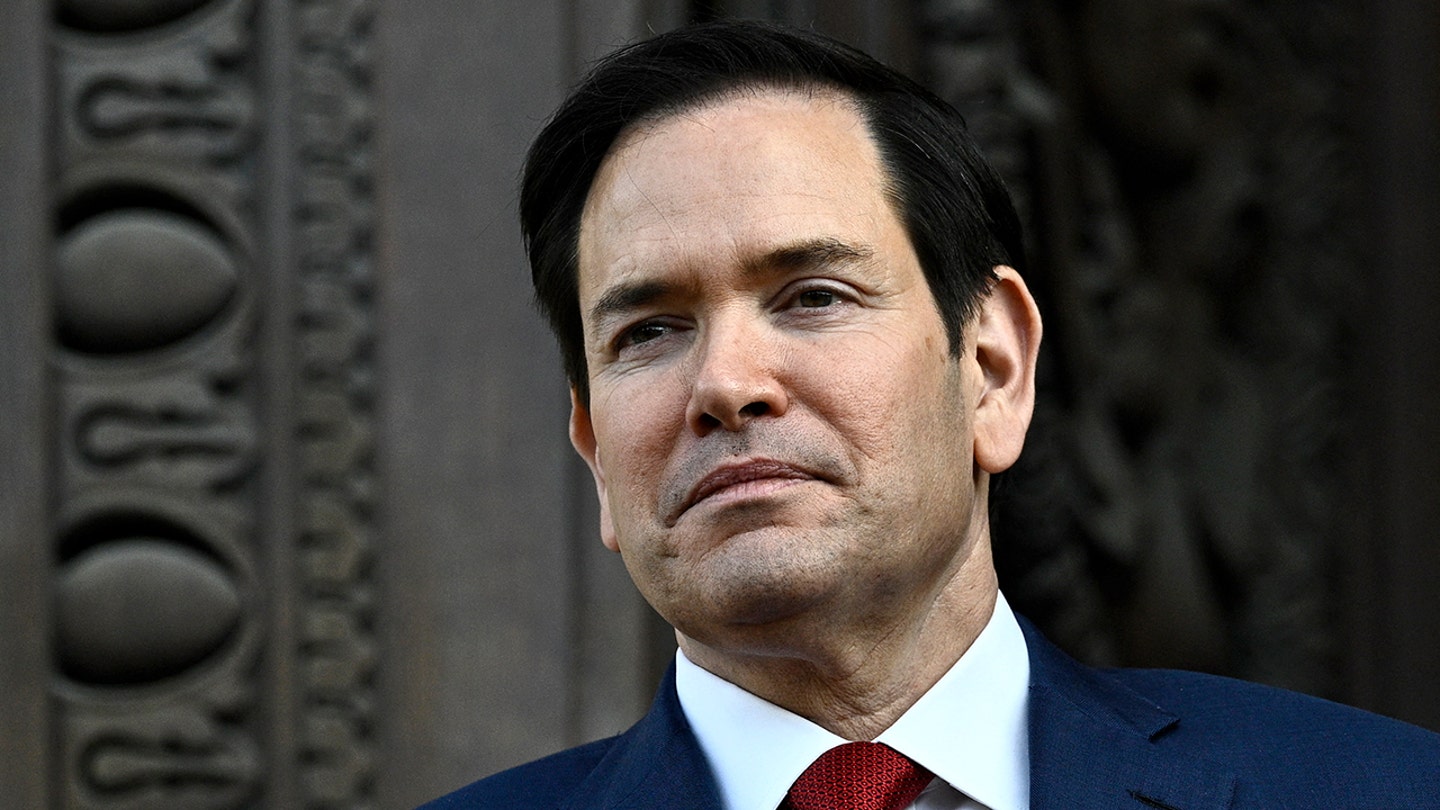
California college athletics organization faces probe over transgender policy
Entities mentioned:
- California Community College Athletic Association (3C2A): Professional pride, Duty, Unity
- Department of Education: Justice, Control, Righteousness
- Justice Department's Title IX Special Investigations Team: Justice, Determination, Moral outrage
- Kimberly Richey: Righteousness, Moral outrage, Justice
- Gavin Newsom: Ambition, Influence, Power
- Trump Administration: Competitive spirit, Justice, Control
Article Assessment:
Credibility Score: 65/100
Bias Rating: 75/100 (Lean Right)
Sentiment Score: 30/100
Authoritarianism Risk: 45/100 (Mixed/Neutral)
Bias Analysis:
The article leans right, using loaded language like 'stunning indictment of our culture' and giving more space to conservative viewpoints. It frames the issue as ideological, emphasizing 'women's rights' over transgender inclusion.
Key metric: Gender Equality in Sports
Let me tell you something - this is a GAME-CHANGING play in the world of college athletics! The California Community College Athletic Association is facing a full-court press from the feds, and it's looking like a tough defensive battle ahead. We've got a real clash of titans here, folks, with the Department of Education and Justice Department tag-teaming to take on the 3C2A's transgender policy. This is the kind of high-stakes matchup that could rewrite the playbook for college sports across the nation! The Trump Administration is coming in hot, blitzing with a fierce defensive strategy to protect women's sports. Meanwhile, Governor Newsom's team seems to be running a different offensive scheme altogether. It's a classic showdown of competing game plans, and I'm telling you right now, this could go into overtime before we see a clear winner!

Jake Paul praises Trump’s leadership, says America is 'healing slowly' under second-term administration
Entities mentioned:
- Jake Paul: Recognition, Influence, Pride
- Donald Trump: Power, Control, Legacy
- Trump Administration: Control, Determination, Competitive spirit
Article Assessment:
Credibility Score: 65/100
Bias Rating: 75/100 (Lean Right)
Sentiment Score: 70/100
Authoritarianism Risk: 65/100 (Authoritarian Tendencies)
Bias Analysis:
The article leans right, presenting Trump's actions positively without critical analysis. It heavily features Jake Paul's pro-Trump statements without balancing perspectives.
Key metric: Presidential Approval Rating
Let me tell you something - this political matchup is HEATING UP! Jake Paul, the social media heavyweight, is stepping into the political ring and throwing his support behind Team Trump! It's a GAME-CHANGING move that could influence millions of young voters. Trump's administration is playing hardball, making big plays with ICE enforcement and National Guard deployment. It's a high-risk, high-reward strategy that's dividing the political arena. Paul's praising Trump's leadership as a winning formula, folks! He's framing it like a championship mentality - trust the process, focus on results. This is fourth-quarter politics at its finest, and Paul's endorsement could be the clutch play that keeps Trump in the game!

Minnesota declines Trump admin's ultimatum to protect girls sports despite pleas from schools and athletes
Entities mentioned:
- Trump Administration: Control, Righteousness, Competitive spirit
- Minnesota Department of Education: Wariness, Self-preservation, Obligation
- Keith Ellison: Justice, Determination, Professional pride
- Minnesota School Board Members: Concern, Duty, Competitive spirit
- Female Athletes: Competitive spirit, Justice, Self-respect
Article Assessment:
Credibility Score: 75/100
Bias Rating: 60/100 (Center)
Sentiment Score: 35/100
Authoritarianism Risk: 45/100 (Mixed/Neutral)
Bias Analysis:
The article presents multiple viewpoints but leans slightly right in its framing of the issue. It gives more space to arguments supporting the Trump administration's position.
Key metric: Gender Equality in Sports
Let me tell you something, folks - this is a FOURTH QUARTER SHOWDOWN between Team Trump and Team Minnesota! The clock is ticking, and Minnesota just pulled a STUNNING DEFENSIVE MOVE by declining to respond to Trump's ultimatum. This is a GAME-CHANGING PLAY that could have MASSIVE IMPLICATIONS for the future of girls' sports! We're seeing a real CLASH OF TITANS here, with school board members and female athletes STEPPING UP TO THE PLATE, demanding fair play. But Ellison's team is HOLDING THE LINE, refusing to budge an inch. This is the kind of HIGH-STAKES MATCHUP that keeps fans on the edge of their seats! The pressure is ON, and we're all wondering who's going to make the next move in this INTENSE BATTLE for the future of girls' athletics!

Minnesota attorney general says trans athletes in girls' sports 'doesn't harm anyone' despite girls speaking out
Entities mentioned:
- Keith Ellison: Righteousness, Justice, Influence
- School Board Members: Duty, Moral outrage, Protection
- Minnesota High School Girls: Competitive spirit, Justice, Self-respect
- Trump Administration: Control, Power, Moral outrage
Article Assessment:
Credibility Score: 70/100
Bias Rating: 65/100 (Lean Right)
Sentiment Score: 30/100
Authoritarianism Risk: 35/100 (Generally Democratic)
Bias Analysis:
The article leans right, giving more voice to opponents of trans athletes in girls' sports. It presents multiple perspectives from those against the policy, while providing less space for supporting arguments.
Key metric: Gender Equality in Sports
Let me tell you something, folks - this is a FULL COURT PRESS situation! We've got a real battle brewing in the Gopher State, with Attorney General Ellison playing defense against a team of fired-up school board members. They're coming at him hard, trying to keep biological males off the girls' roster, but Ellison's holding the line like a seasoned goalie. Meanwhile, we've got young female athletes speaking out from the sidelines, feeling like they're being benched in their own game! It's a classic David vs Goliath matchup, with these high school girls taking on the big leagues of state policy. The Trump administration is making power plays from Washington, but Ellison's not backing down - he's digging in his cleats and preparing for extra innings in this legal showdown. This isn't just a game, folks - it's a championship bout for the future of girls' sports in Minnesota!

Minnesota leadership faces calls from schools to protect girls' sports as Trump's Title IX deadline looms
Entities mentioned:
- Minnesota Education Agencies: Obligation, Duty, Anxiety
- School Board Members: Righteousness, Duty, Security
- Trump Administration: Control, Righteousness, Competitive spirit
- Keith Ellison: Justice, Righteousness, Determination
- Trans Athletes: Recognition, Competitive spirit, Self-respect
- Female Athletes: Competitive spirit, Justice, Self-preservation
Article Assessment:
Credibility Score: 75/100
Bias Rating: 55/100 (Center)
Sentiment Score: 30/100
Authoritarianism Risk: 45/100 (Mixed/Neutral)
Bias Analysis:
The article presents multiple viewpoints, including those supporting and opposing trans athlete participation. However, it gives slightly more space to arguments against trans inclusion, potentially leaning towards a center-right perspective.
Key metric: Gender Equality in Sports Participation
Let me tell you something, folks - this is a FULL COURT PRESS situation! We've got a real battle of the titans here, with Minnesota's education agencies facing a fourth-quarter deadline from Team Trump. The school board members are stepping up to the plate, urging state leaders to play ball with the feds. But Attorney General Ellison is playing defense, determined to protect trans athletes' right to compete. Meanwhile, female athletes are crying foul, claiming it's not a level playing field. This is a high-stakes game, folks, with federal funding on the line and the future of girls' sports hanging in the balance. It's crunch time, and everyone's bringing their A-game in this heated match-up!

Minnesota teen softball player opens up on trans pitcher playoff game as Trump admin vows Title IX enforcement
Entities mentioned:
- Kendall Kotzmacher: Competitive spirit, Justice, Determination
- Marissa Rothenberger: Competitive spirit, Recognition, Self-respect
- Trump Administration: Justice, Control, Righteousness
- Minnesota Department of Education: Obligation, Unity, Wariness
- Minnesota State High School League: Obligation, Unity, Wariness
- Gov. Tim Walz: Loyalty, Unity, Righteousness
- Attorney General Keith Ellison: Justice, Righteousness, Pride
Article Assessment:
Credibility Score: 65/100
Bias Rating: 70/100 (Lean Right)
Sentiment Score: 30/100
Authoritarianism Risk: 45/100 (Mixed/Neutral)
Bias Analysis:
The article leans right, focusing heavily on perspectives critical of transgender athletes in girls' sports. It gives more space to those opposing transgender participation, while providing limited counterarguments.
Key metric: Title IX Compliance in High School Athletics
Let me tell you something, folks - this is a GAME-CHANGING moment in the world of high school sports! We've got a real David vs. Goliath situation here, with young athletes like Kendall Kotzmacher stepping up to the plate against a system that's throwing them curveballs left and right. The Trump administration is coming in like a relief pitcher in the bottom of the ninth, ready to enforce Title IX with the intensity of a championship-winning closer. But watch out! Minnesota's leadership is digging in their cleats, refusing to back down in this high-stakes showdown. This isn't just another inning, folks - it's a full-on battle for the future of girls' sports, and believe me, both sides are playing hardball. We're seeing power plays, strategic moves, and some serious defensive maneuvers that would make any coach proud. The scoreboard is lit up with legal challenges, executive orders, and passionate activism from both teams. I'm telling you right now, this is the kind of political athletics that will be studied in playbooks for years to come!

Trump admin finds Minnesota violated Title IX by letting males in girls' sports, citing trans softball pitcher
Entities mentioned:
- Trump Administration: Righteousness, Competitive spirit, Justice
- Minnesota Department of Education: Obligation, Wariness, Self-preservation
- Minnesota State High School League: Obligation, Wariness, Self-preservation
- Keith Ellison: Competitive spirit, Righteousness, Pride
- Female Athletes: Competitive spirit, Justice, Self-respect
- Marissa Rothenberger: Competitive spirit, Ambition, Recognition
Article Assessment:
Credibility Score: 65/100
Bias Rating: 70/100 (Lean Right)
Sentiment Score: 30/100
Authoritarianism Risk: 55/100 (Mixed/Neutral)
Bias Analysis:
The article leans right, heavily focusing on the Trump administration's actions and quoting conservative viewpoints. It presents transgender athlete participation as problematic, with limited counterbalancing perspectives.
Key metric: Gender Equality in Sports
Ladies and gentlemen, we've got a CHAMPIONSHIP SHOWDOWN on our hands! The Trump Administration is coming in hot, throwing HEAT at Minnesota's education agencies for what they're calling a MAJOR LEAGUE VIOLATION of Title IX. This isn't just a game, folks - we're talking about the BIG LEAGUES of civil rights here! The feds are stepping up to the plate, swinging for the fences to keep biological males out of girls' sports. It's fourth quarter, two-minute drill time for Minnesota - they've got 10 days to change their game plan or face the ultimate penalty: disqualification from federal funding! Meanwhile, we've got female athletes in the trenches, fighting an uphill battle against what they see as an unfair advantage. This is a real test of endurance, folks - a true iron man competition of legal and ethical proportions. The clock is ticking, the pressure is mounting, and we're all waiting to see who's got the championship mentality to come out on top in this high-stakes match-up!

WNBA star's 1-word response after Obama accuses Trump admin of taking 'cancel culture' to 'dangerous level'
Entities mentioned:
- Napheesa Collier: Competitive spirit, Professional pride, Wariness
- Barack Obama: Righteousness, Moral outrage, Influence
- Trump administration: Control, Power, Influence
- Jimmy Kimmel: Moral outrage, Self-preservation, Professional pride
- Brendan Carr: Duty, Control, Power
- Charlie Kirk: Legacy, Influence, Recognition
Article Assessment:
Credibility Score: 65/100
Bias Rating: 55/100 (Center)
Sentiment Score: 30/100
Authoritarianism Risk: 55/100 (Mixed/Neutral)
Bias Analysis:
The article presents multiple viewpoints, including both conservative and liberal perspectives. However, it leans slightly towards emphasizing conservative reactions and concerns.
Key metric: Media Freedom Index
Let me tell you something - this story is a FULL COURT PRESS on the First Amendment! We're seeing a political power play that's turning the media landscape into a high-stakes championship game. The Trump administration is coming in hot with a full-court press on cancel culture, while Team Obama is trying to run interference. It's like we're watching the fourth quarter of democracy, folks! Kimmel fumbled the ball with his controversial comments, and now the FCC is looking to capitalize on the turnover. This is the kind of political defense that could change the whole game plan for media freedom. I'm telling you right now, we're in overtime, and every player needs to step up to protect the integrity of the game!

Transgender athlete fires back at critics as spotlight increases on girls' volleyball participation
Entities mentioned:
- AB Hernandez: Self-respect, Determination, Recognition
- California Interscholastic Federation (CIF): Obligation, Duty, Unity
- Trump administration: Justice, Control, Moral outrage
- California Department of Education (CDE): Duty, Unity, Obligation
- Opposing schools: Moral outrage, Righteousness, Protest
Article Assessment:
Credibility Score: 70/100
Bias Rating: 55/100 (Center)
Sentiment Score: 35/100
Authoritarianism Risk: 40/100 (Generally Democratic)
Bias Analysis:
The article presents multiple perspectives, including the transgender athlete's view and the actions of opposing teams. However, it leans slightly towards sympathetic coverage of Hernandez, while presenting opposing views more briefly.
Key metric: Social Cohesion
As a social scientist, I analyze that this article highlights the ongoing tension between transgender rights and traditional gender-based sports divisions. The controversy surrounding AB Hernandez's participation in girls' sports reflects broader societal debates about inclusivity, fairness, and the definition of gender in athletics. This situation is likely to impact social cohesion by polarizing communities and potentially eroding trust in educational institutions and sports governing bodies. The forfeiture of games by opposing schools indicates a significant level of resistance to transgender participation in girls' sports, which could lead to further division and conflict within the community. The legal action taken by the Trump administration against California's policies adds a federal dimension to what was previously a state-level issue, potentially escalating the conflict and its societal impact.

House Democrats call on Rubio to allow injured children from Gaza into US following visa halt
Entities mentioned:
- House Democrats: Moral outrage, Justice, Compassion
- Trump administration: Security, Control, Wariness
- Marco Rubio: Security, Duty, Wariness
- State Department: Security, Control, Duty
- Hamas: Power, Control, Influence
- Israeli government: Security, Control, Self-preservation
Article Assessment:
Credibility Score: 75/100
Bias Rating: 40/100 (Lean Left)
Sentiment Score: 35/100
Authoritarianism Risk: 45/100 (Mixed/Neutral)
Bias Analysis:
The article leans slightly left, giving more space to Democratic concerns and humanitarian arguments. While it includes Rubio's perspective, it frames the visa halt more critically and emphasizes the potential negative impact on children needing medical care.
Key metric: US Foreign Policy Effectiveness
As a social scientist, I analyze that this article highlights a conflict between humanitarian concerns and national security interests in US foreign policy. The decision to halt visas for Gaza residents, including children needing medical care, demonstrates a prioritization of security concerns over humanitarian aid. This policy shift could impact the US's global image and its ability to balance hard and soft power in international relations. The congressional pushback indicates internal disagreement on the appropriate balance between security and humanitarian considerations, which could lead to policy adjustments. The situation also underscores the complex interplay between domestic politics, international relations, and humanitarian issues in US foreign policy decision-making.